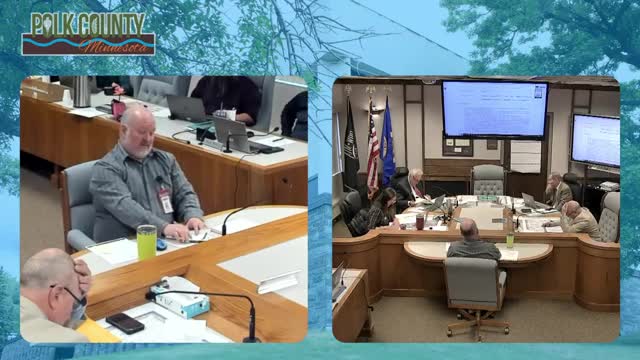Article not found
This article is no longer available. But don't worry—we've gathered other articles that discuss the same topic.
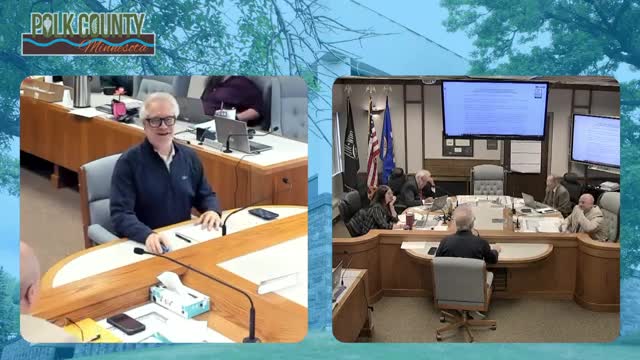
Board redesignates ARPA funds for Fertile project, approves recruitment to fill finance director role
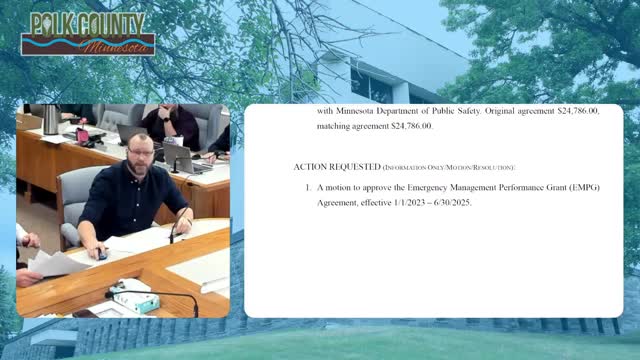
County approves 2023 EMPG grant agreement to fund emergency management staffing
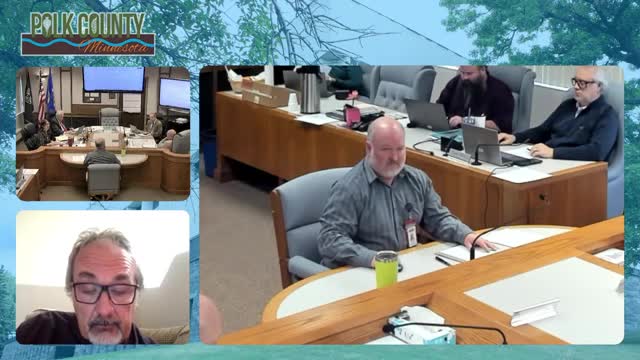
Board approves hauler licenses for Waste Management of Minnesota and demolition contractor
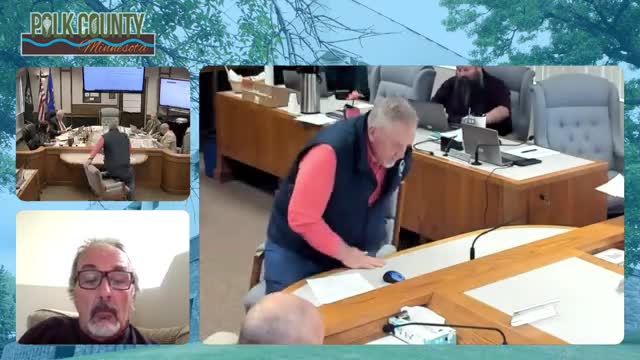
Polk County moves municipal highway funds into county account and awards base stabilization contracts
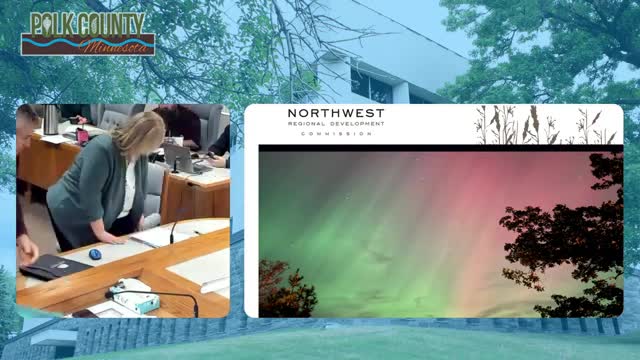
Northwest Regional Development Commission outlines 2024 spending, local programs and Crookston projects
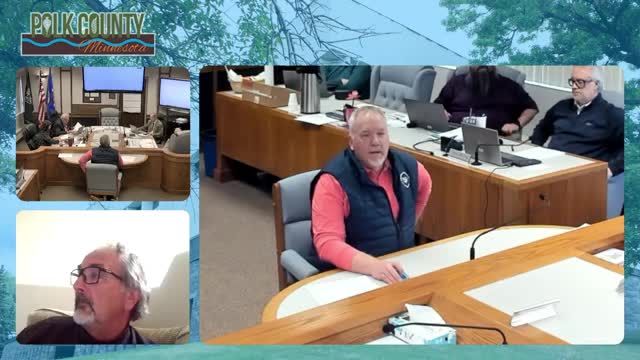
Board approves Sand Hill ditch redetermination process, hires H2O Viewers for Polk County ditches
